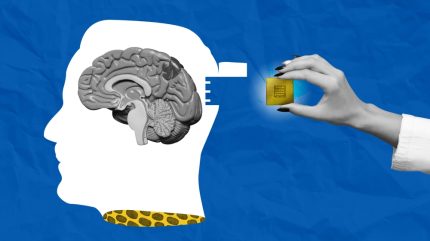
Onward Medical has successfully implanted a second patient with a brain-computer interface (BCI) system to restore lower limb movement.
The implant is part of a feasibility study investigating the ARC-BCI system in spinal cord injury patients who are paralysed from the waist down.

Discover B2B Marketing That Performs
Combine business intelligence and editorial excellence to reach engaged professionals across 36 leading media platforms.
The Wimagine BCI is being provided by Clinatec, a biomedical research centre located on the CEA campus in Grenoble, France. Onward’s component is the ARC-IM, an implantable spinal cord stimulation system.
The two devices work in tandem whereby the BCI detects brain signals and translates them into commands, which are then picked up by the ARC-IM and delivered as targeted and programmed neurostimulation.
Dr Jocelyne Bloch, who performed the implant, said the procedure “went smoothly, and early signs are encouraging.”
The trial is been supported by a grant from the European Innovation Council and coordinated by Swiss neuroscience research institute NeuroRestore. The company said the most recent procedure was conducted at the Centre Hospitalier Universitaire Vaudois (CHUV) in Lausanne, Switzerland.

US Tariffs are shifting - will you react or anticipate?
Don’t let policy changes catch you off guard. Stay proactive with real-time data and expert analysis.
By GlobalDataThe implant marks the third overall with Clinatec’s BCI in Onward’s programmes – with another coming in a parallel feasibility study for upper limb movement.
The first implant made waves back in 2021, with results published in Nature demonstrating how a patient moved his paralysed legs by thinking, aided by Onward’s system.
Onward, which was accepted onto the US Food and Drug Administration’s (FDA) new Total Product Lifecycle Advisory Program (TAP) earlier this year, has a range of devices currently in clinical development. Among these is the ARC-EX – a non-implantable counterpart of the ARC-IM – that met its primary and secondary endpoints in a trial called Up-LIFT in May this year.
The results, published in Nature Medicine, showed the technology to improvements in upper limb strength, function, and sensation in patients with chronic tetraplegia due to cervical spinal cord injury. Unlike the feasibility study with the ARC-BCI, the Up-LIFT trial did not include a brain chip component.
The news comes after Neuralink gained an FDA breakthrough device designation for its Blindsight BCI for restoring vision. The company’s other brain chip product, Telepathy, is currently in clinical trials for restoring movement in paralysed limbs. The Elon Musk-owned company has currently implanted two patients with Telepathy.





